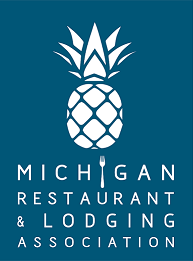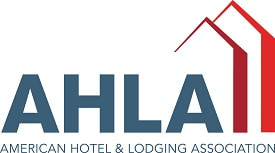Click to set custom HTML
Through the provisions of Public Act 501 of 2006, the Liquor Control Commission (LLC) may issue new public on-premises liquor licenses to local units of government. In order to allow cities to enhance the quality of life for their residents and visitors to their communities, the LLC may issue public on- premises licenses in addition to those quota licenses allowed in cities under Section 531 (L) of the Michigan Liquor Control Code, Public Act 58 of 1998 as amended.
Note: This document is offered as a general guide only and the legislation should be reviewed by local officials.
Note: This document is offered as a general guide only and the legislation should be reviewed by local officials.
Who is Eligible?
A business must be located in either a business district listed below or in a city redevelopment area, as defined in Sec. 521a (2)(c)
Applicants in these businesses districts must:
Be a business engaged in dining, entertainment or recreation and open to the general public.
The LCC may issue one license for each of the above ($200,000) monetary thresholds reached and for each major fraction thereof after the initial threshold is reached.
The LCC may also issue redevelopment liquor licenses to businesses located in a city redevelopment area (there may be more than one in a city).
Applicants in city redevelopment areas must:
- Tax Increment Finance Authority (TIFA) PA 450 of 1980
- Corridor Improvement Authority (CIA) PA 280 of 2006
- Downtown Development Authority (DDA) PA 197 of 1975
- Principal Shopping District (PSD) PA 120 of 1961
Applicants in these businesses districts must:
Be a business engaged in dining, entertainment or recreation and open to the general public.
- Have a seating capacity of at least 25 people;
- Have spent at least $75,000 for the rehabilitation or restoration of the building where the license will be housed over a period of the preceding five years or a commitment for a capital investment of at least $75,000 that will be spent before the issuance of the license;
- Show that the total amount of private and public investment in real and personal property in a district listed above was at least $200,000 in the period covering the preceding five years.
The LCC may issue one license for each of the above ($200,000) monetary thresholds reached and for each major fraction thereof after the initial threshold is reached.
The LCC may also issue redevelopment liquor licenses to businesses located in a city redevelopment area (there may be more than one in a city).
Applicants in city redevelopment areas must:
- Be a business engaged in dining, entertainment or recreation
- Be open to the general public at least 10 hours per day, five days per week
- Have a seating capacity of at least 25 people
- Adopt a resolution from the governing body of the city establishing the redevelopment project area
- Provide a map which clearly reflects and outlines where the redevelopment project area is located within the local unit of government
- Provide an affidavit from the assessor, as certified by the city clerk, stating the total amount of investment in real and personal property within the redevelopment project area of the city during the preceding three year time period
- Relative to a license issued in a city redevelopment project area, the amount of commercial investment in the redevelopment project area within the city shall constitute not less than 25 percent of the total investment in real and personal property as evidenced by an affidavit of the city assessor as certified by the city clerk;
- A resolution which approves a specific applicant (individual, corporation, limited liability company, limited partnership) at a specific location;
- Have total investment over the last three years in real and personal property in the redevelopment area of:
» At least $50 million in cities having a population of 50,000 or more, or at least $1 million per 1,000 people in cities of less than 50,000.
The LCC may issue a license when one of the abovementioned monetary thresholds is met.
What is the Process?
To be considered for the license by the LCC:
The local unit of government must pass a resolution approving the applicant for an on-premise liquor license pursuant to PA 501 of 2006. If the business is located in a city redevelopment project area the resolution should indicate the license be issued under Section 521a (1)a of PA 501 of 2006. If the business is located in a DDA, TIFA, PSD, etc., the resolution should indicate the license be issued under
Section 521a (1)b of PA 501 of 2006.
Applications can be obtained from the LCC by clicking the link below or calling 517-322-1400
The local unit of government must pass a resolution approving the applicant for an on-premise liquor license pursuant to PA 501 of 2006. If the business is located in a city redevelopment project area the resolution should indicate the license be issued under Section 521a (1)a of PA 501 of 2006. If the business is located in a DDA, TIFA, PSD, etc., the resolution should indicate the license be issued under
Section 521a (1)b of PA 501 of 2006.
- The resolution and application ideally should be submitted at the same time.
Applications can be obtained from the LCC by clicking the link below or calling 517-322-1400
All applicants will:
the license to the LCC. The governing body of the local governmental unit may approve another applicant within the redevelopment project area or development district to replace
- Need to demonstrate that they have attempted to purchase a readily available escrowed or quota on premise license within the municipality that they want to operate, and that a license was not available.
- Pay a $20,000 fee for the license. Upon receipt of the documentation from the local unit of government, the necessary application forms, other required documents and inspection fees, the application will be authorized for investigation.
the license to the LCC. The governing body of the local governmental unit may approve another applicant within the redevelopment project area or development district to replace
Important Note
Do not invest any money in improvements or bind yourself in any agreements until you have been officially notified by the LCC that your request has been approved.
Supporting Statute
Contact Information
For more information on redevelopment liquor licenses, contact the Community Assistance Team (CAT) specialist assigned to your territory or visit www.miplace.org.






